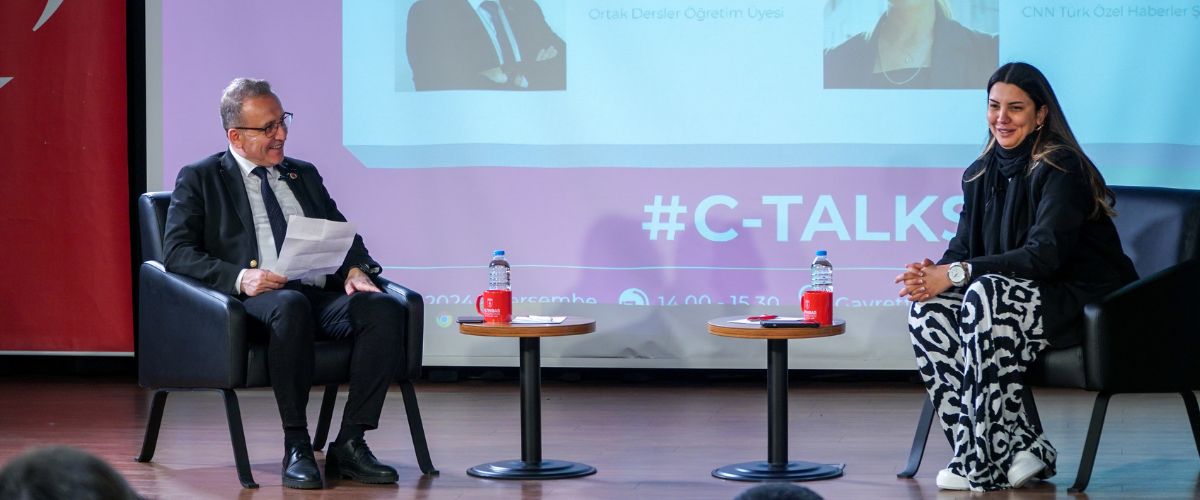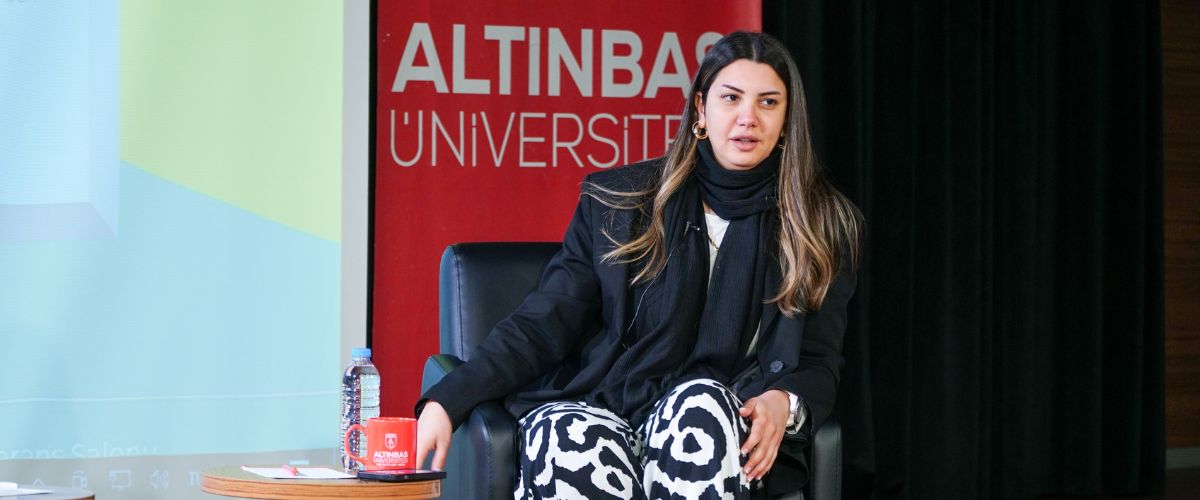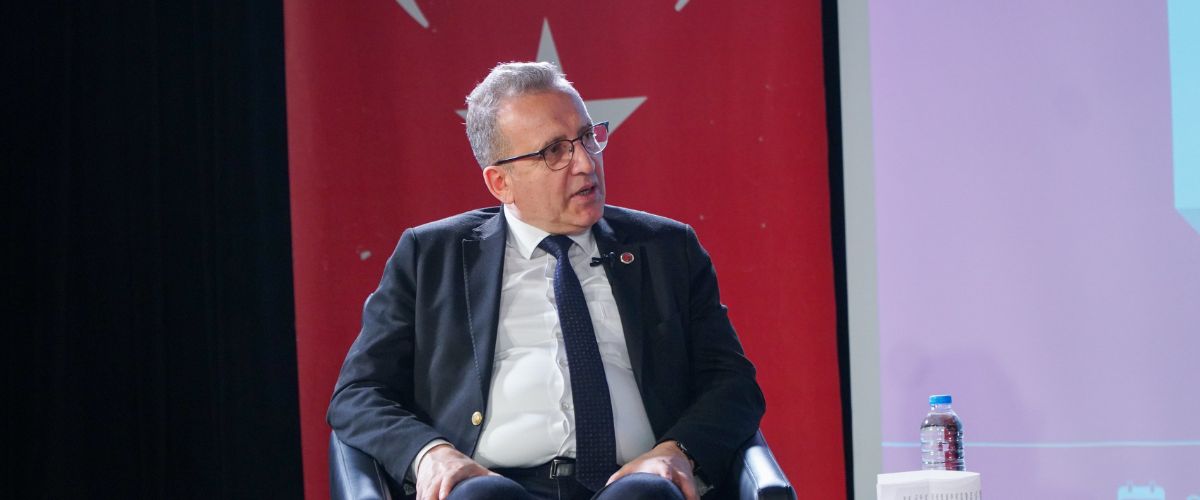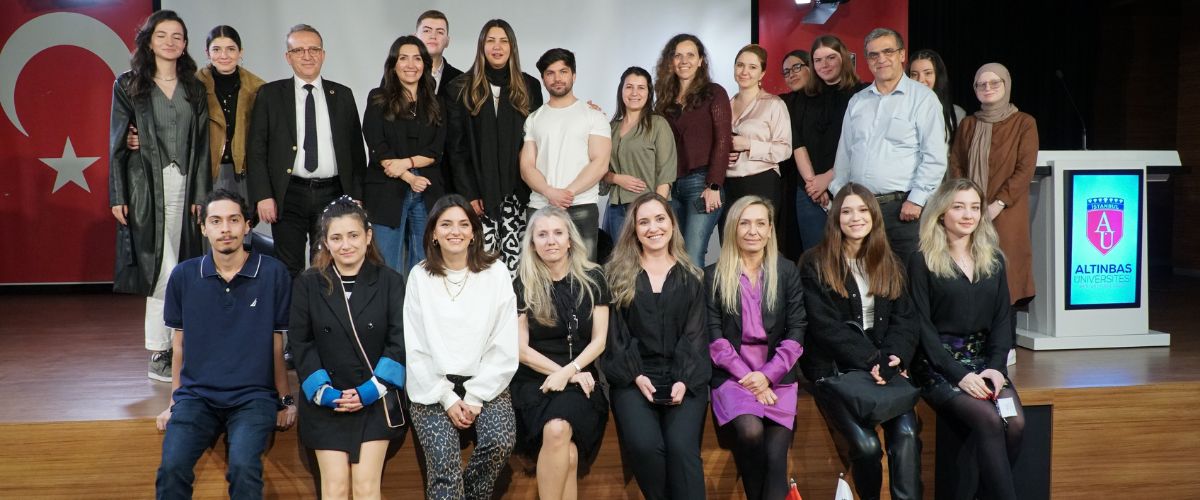“If I were to come back to the world again, I would want to be a reporter”
Successful television journalist and CNN Türk Special News Chief Fulya Öztürk participated in the C - Talks event organized by Altınbaş University and met with students.
Fulya Öztürk, the most talked about journalist of the recent period, answered the questions of students at the C - Talks event organized by Altınbaş University Dean of Students.
In the event moderated by Prof. Dr. Eray Güçlüer, Fulya Öztürk talked about the difficulties of field reporting and 21st century journalism.
Sharing both the physical and psychological difficulties she experienced as a female journalist in the earthquake zone, Fulya Öztürk said, “As a field reporter, I am used to field conditions. I was in the earthquake zone for 3 months without interruption. I was there from 9 a.m. on February 6 until May. When I returned, the season had changed.
There were so many topics to cover that I couldn't go back. We usually stayed in the car, sometimes in a caravan. I remember fainting on air for the first 4 days due to fatigue and hunger. Our job is not to reflect these on the screen, not to upset people.
It was never easy, but it feels shameful for me to even talk about the troubles I went through compared to what the earthquake victims went through there.”
Stating that she was a fan of Mehmet Ali Birand and that his love for journalism started during his time, the successful journalist answered Eray Güçlüer's question “How do you endure this stress?” by saying, “I don't know how I endure it either. But I guess I got used to it. This is my character. God created me like this.”
Suggesting that people should choose a profession that suits their character, Öztürk said, “Those who want to be a journalist should first know their own characteristics well. A journalist must first love life and people. No one will ever ask about the department you graduated from. Are you curious, do you know how to listen, do you empathize? These will be more important.”
Emphasizing that trust is the main issue in journalism, Öztürk also touched upon the information pollution on social media. Öztürk said, “Most of what you see and read there is not real. On the other hand, Öztürk stated that TV still maintains its credibility and said, “I think television is still the most effective medium. It's not like printed publications, I don't think television will end easily.” and shared his views on the future of television.
Öztürk, who went to the region at a time when Iran fired missiles at Israel and tensions were running high, also talked about his experiences, from the detention process to the communication she established with the local people afterwards. Öztürk said, “A journalist working in a foreign country must have a permission slip from the authorities. If you are a foreign journalist, you cannot broadcast randomly on the street anywhere in the world. In a country like Iran, this is very difficult. We had a short detention period because we started working without the necessary permits yet.”
Stating that there is no door that cannot be opened when the right communication is established, Öztürk said, “İran is a country that should be recognized for its history and cultural background. There are 90 million people in İran, 50 million of which are Turks. Therefore, I was able to communicate comfortably.” Öztürk shared his experiences.





